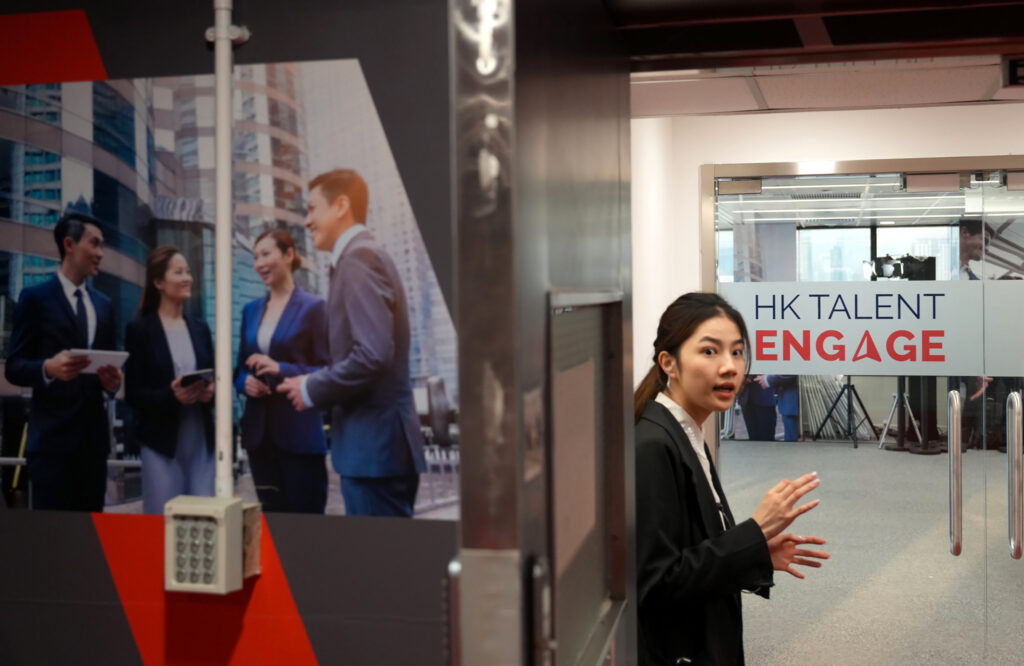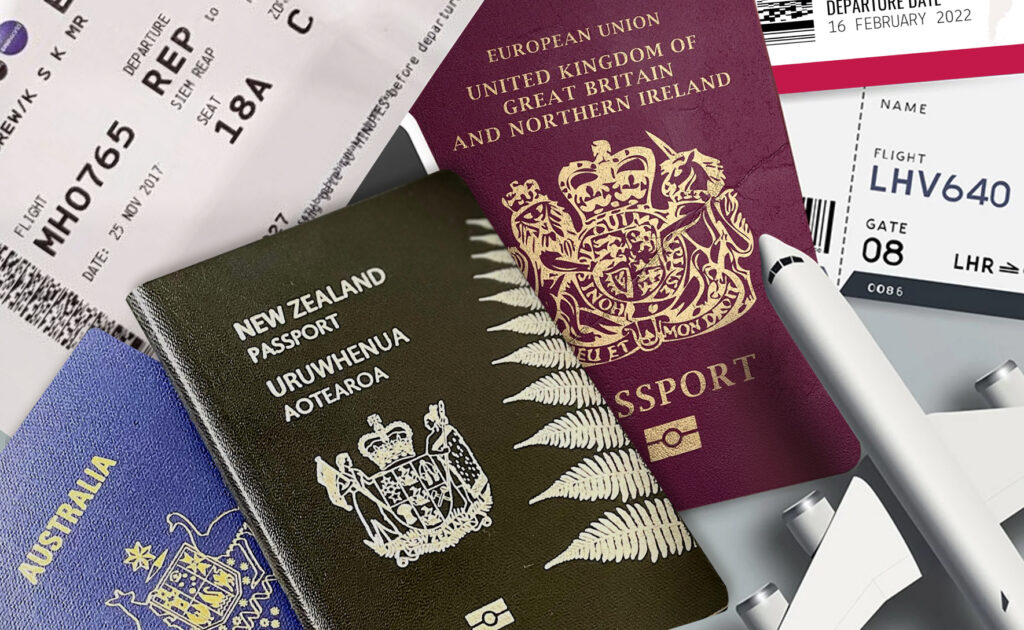Hong Kong undoubtedly potted a maximum break when snooker great Ronnie O’Sullivan was lured to these shores under the Quality Migrant Admission Scheme. Having the English professional declare himself a Hong Kong resident, heralding its many charms and advantages, was a major coup for a city which has undergone difficult times of late.
It appears the love affair is mutual, with Secretary for Labour and Welfare Chris Sun Yuk-han offering words of admiration for the seven-time world champion who was attracted by Hong Kong’s lifestyle, closeness to the mainland and low taxes. His arrival is part of a drive by the government to entice people with the skills and talents – and in some cases capital – urgently required by the city. A slew of new initiatives is aiming to bring in these exceptional human resources.

“Seeing a global sports star like O’Sullivan here not only delights fans but also highlights Hong Kong’s reputation as a world stage, capable of hosting and appreciating excellence in all forms,” says Juan Pierre Dorfling, Gough Recruitment’s Managing Director for Asia.
Hong Kong’s most wanted
Dorfling believes O’Sullivan’s residency sets a perfect example for talented individuals around the globe, no matter their field, to envisage Hong Kong as a place where they can shine. These kinds of subliminal messages are important for anyone involved in inducing holders of sought-after skills to settle in the city since the demand for such people seems only set to rise.
Deutsche Bank recently stressed the pressing need for an influx of talent as the financial market picks up and cross-border activity accelerates, and a CPA Australia survey last autumn indicated 63 per cent of executives, accountants and finance professionals expected growth in their companies over the coming year. “Broadly speaking, demand is surging for professionals with expertise in cutting-edge technology, sustainable finance, wealth management and advanced healthcare services,” says Dorfling.
Hong Kong’s aspirations to be Asia’s leading fintech hub will require not only top-notch software developers and data scientists but also professionals versed in compliance, cybersecurity and global regulatory frameworks, Dorfling indicates. “The burgeoning green finance sector is another [in need of talent]. Hong Kong’s position as a major capital market is driving demand for people who can structure green bonds, advise on ESG investing, and navigate complex carbon-trading mechanisms,” he adds.

The recruitment expert says there is an urgent need for talent that can connect local enterprise with international standards of excellence in these rapidly evolving fields. International lawyers, accountants and corporate strategists who understand both Asia-Pacific market dynamics and global best practices are also crucial.
Ultimately, steady inflows of world-class banking and finance professionals will be required to maintain Hong Kong’s position as a world-class finance centre. These include individuals who can navigate the complexities of mainland China’s markets, spearhead sophisticated investment strategies, and handle cross-border transactions with agility and compliance.
Thinning pipeline
Despite this undoubted demand, there remains a significant shortage of talent. According to the Hong Kong Institute of Human Resource Management, nearly 70 per cent of employers have reported difficulties filling specialised roles, particularly in emerging technology and professional services. Over the past few years, various international reports and corporate surveys have indicated a thinning pipeline of talent in Asia’s major financial hubs.
“Hong Kong, despite its many advantages, hasn’t been immune,” says Dorfling, indicating there is a mismatch between current skill sets in the city and the capabilities the market requires to remain globally competitive. “This shortage isn’t crippling, but it’s definitely a headwind – one that Hong Kong needs to address proactively to maintain its leadership status.”

He notes that better training of local professionals in areas such as programming languages used in algorithmic trading, or leveraging artificial intelligence to improve investment strategies, could help plug the gap. Another area of concern is locating digital marketing experts who can fuse analytics with creative strategies to target China’s evolving consumer base.
Perception problem
One talented finance professional who has taken the plunge to settle in Hong Kong is Harry Bethwaite, an Investment Associate at Capital Union Investments. The Australian, a frequent traveller to the SAR for a decade, made his stay permanent in 2023 when a career opportunity arose. “Hong Kong provides a great lifestyle, easy access to the rest of Asia, competitive tax rates and an incredible blend of East-meets-West culture,” he says. “Singapore offers this to a certain degree and is catching up in many senses, but still isn’t quite to the [same] level.”
Though Bethwaite elected Hong Kong over Singapore, he does concede that it has issues to overcome, in particular negative perception overseas. “I think Hong Kong currently has a marketing issue. I vividly remember reading an article before arriving in Hong Kong with the headline ‘The expat exodus,’” he recalls.
Reading about thousands of expatriates who had left Hong Kong due to their experiences during the pandemic and their uncertainty about the changing landscape did prompt some initial misgivings about his decision to move here. “You rarely see any positive news abroad about Hong Kong, and without it, it’s genuinely hard to envision how life is here on a day-to-day basis or the benefits of the city,” he says.
According to Bethwaite, a common error made when weighing up the merits of a potential home is to judge it on a standalone basis rather than in comparison with other locales. “From my perspective when I decided to move to Hong Kong, I thought the benefits Asia offers in terms of growth opportunities, culture, cost of living and safety outweigh the likes of London and New York,” he explains.
Improving liveability
Other professionals may be deterred by the high cost of housing or the intense work culture. Political commentator Alice Wu recently opined that the government should offer greater support to new arrivals in its attempts to plug the brain drain.

“Hong Kong’s government and business community are acutely aware of these issues and are actively working to address them ¬– through housing initiatives, improving the liveability quotient, and reinforcing Hong Kong’s position as a stable, globally connected city,” says Dorfling, who foresees a renewed interest in professionals relocating to Hong Kong.
Hong Kong’s leadership is actively implementing programmes and policies – such as the Top Talent Pass Scheme and enhanced visa policies – to simplify the relocation process.
Diversity necessity
For Dorfling, the stakes are high – and multi-faceted – for Hong Kong’s future as a thriving and diverse international city. “Hong Kong’s capacity to attract and retain top talent isn’t just an economic imperative – it’s also a cultural one,” he states. “By drawing in professionals from all corners of the globe, Hong Kong enriches its cultural tapestry, keeps its business environment fertile, and positions itself as a catalyst for cross-pollination of ideas.”
Overseas talent serves to maintain and strengthen Hong Kong’s unique position in the world economy and bolster its standing as a truly international city – “one that can meet the evolving demands of an increasingly knowledge-based economy while offering a cosmopolitan lifestyle that reflects its East-meets-West heritage,” he says.



